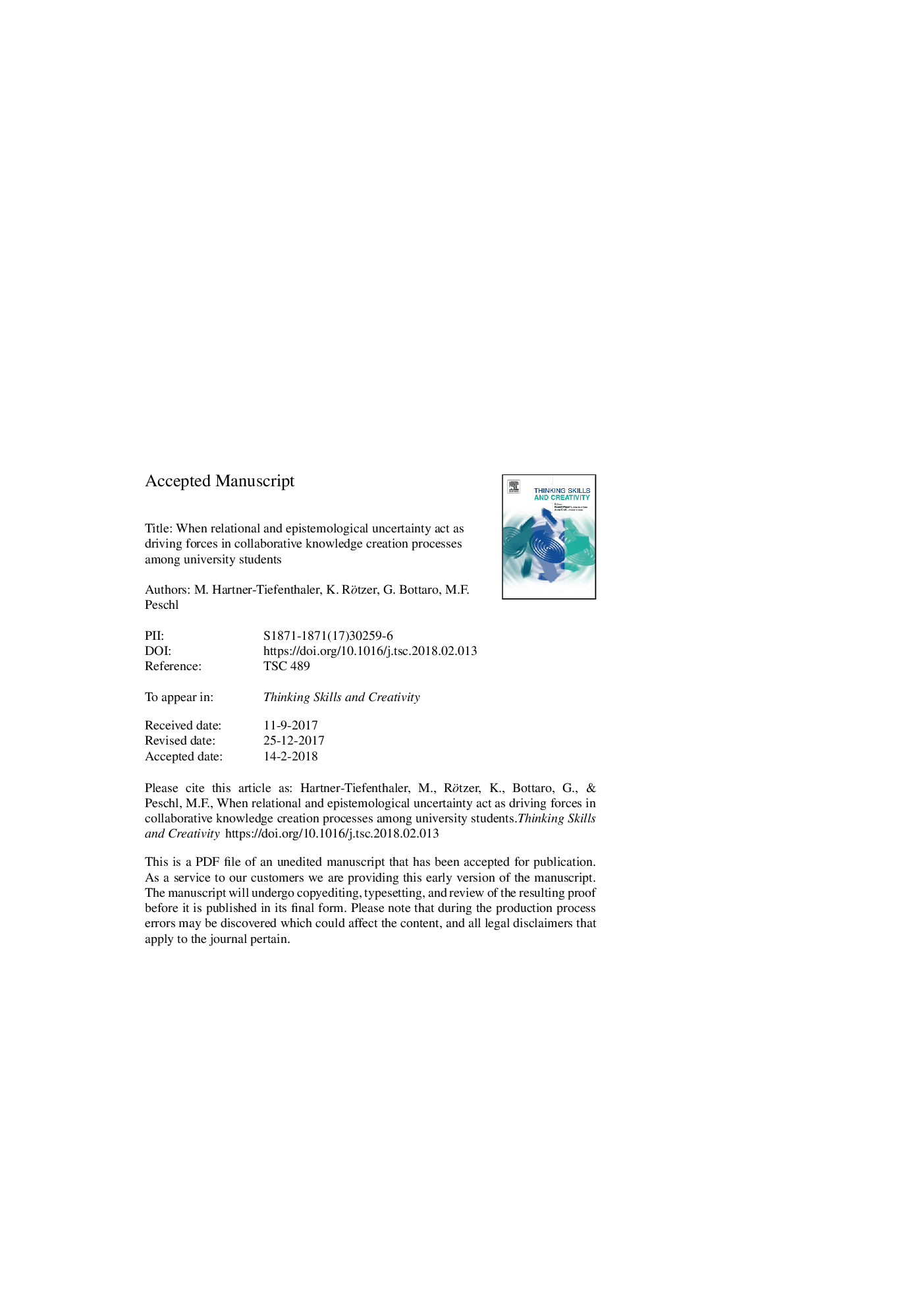| Article ID | Journal | Published Year | Pages | File Type |
|---|---|---|---|---|
| 6851826 | Thinking Skills and Creativity | 2018 | 50 Pages |
Abstract
Our findings reveal that relational uncertainty is predominantly salient at the beginning of the knowledge creation process, and that overcoming it unleashes a motivating function. Experiencing the overcoming of relational uncertainty enables deeper engagement in epistemological uncertainty, which turned out to have a positive impact on the outcome of the knowledge creation process. Both forms, relational and epistemological uncertainty, are relevant for the knowledge creation process and act as driving forces in collaborative knowledge creation situations. Therefore, triggering uncertainty should be used in a well-directed manner to foster learning in higher education. However, when relational uncertainty is not properly managed at the beginning of the process, the positive effect of epistemological uncertainty does not arise.
Related Topics
Social Sciences and Humanities
Psychology
Developmental and Educational Psychology
Authors
M. Hartner-Tiefenthaler, K. Roetzer, G. Bottaro, M.F. Peschl,
